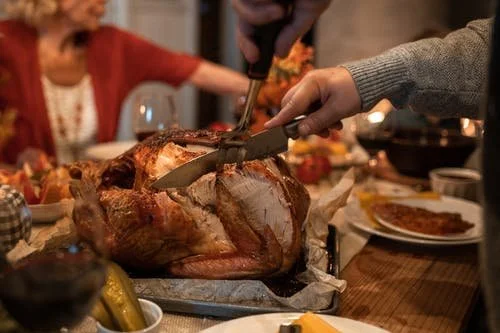A Visit From St. Nicholas
/'Twas the Night Before Christmas, and all through the house, not a client was stirring, not even a mouse
The stockings were hung by the chimney with care, in hopes that more tax shelters soon would be there
Dependents were nestled all snug in their beds while visions of tax-free gifts danced in their heads
And I in my kerchief (and also my cap) had just settled down for a long winter nap
When out on the street there arose such a clatter, I sprang from my bed to see what was the matter!
Away to the window I flew like a bee, knocked over my laptop and even my tree
The moon on the breast of the new fallen snow gave the lustre of mid-day to objects below;
When, what to my wondering eyes should appear, but a recaptured sleigh, and eight tiny rein-deer,
With a little old driver, so lively and quick, I knew in a moment it must be St. Nick.
More rapid than refunds his coursers they came, and he whistled, and shouted, and called them by name:
"Now! Cost-Seg, now! S-corp, now! Roth IRA, Gift-leaseback! Self-rental! now 401k!;
To the top of the porch! To the top of the wall! Now dash away! Dash away! Dash away all!"
As tax cheats before the grim auditors fly, when they meet with subpoenas, mount to the sky;
So up to the office the coursers they flew, with the sleigh full of loopholes — and Santa Claus too:
And then in a twinkling, I heard on the roof the prancing and pawing of each little hoof.
As I drew in my head, and was turning around, down the chimney St. Nicholas came with a bound:
He was dress'd all in fur, from his head to his foot, and even his ten-key was covered with soot;
A briefcase of papers held tight in his hand, all big words and numbers you don't understand:
His eyes — how they twinkled! His dimples: how merry! His cheeks were like roses, his nose like a cherry;
His droll little mouth was drawn up like a bow, as if daring the Tax Court to try and say "no";
The stump of a pen he held tight in his teeth, and a register tape wrapped his head like a wreath.
He had a broad face, and a little round belly (He writes off his breakfasts with honey and jelly!)
He was chubby and plump, a right jolly old elf, and I laugh'd when he saw him in spite of myself;
A wink of his eye, and a "no change" letter, soon let me know I could start feeling better.
He spoke not a word, but went straight to his work, fill'd all our stockings; then turn'd with a jerk,
And laying his finger aside of his nose, and giving a nod, up the chimney he rose.
He sprang to his sleigh, with his coat free from ash, and he looked just as dazzling as fresh tax-free cash:
But I heard him exclaim, with no hint of a stress — "Merry Christmas to all, and be sure to pay less!"




